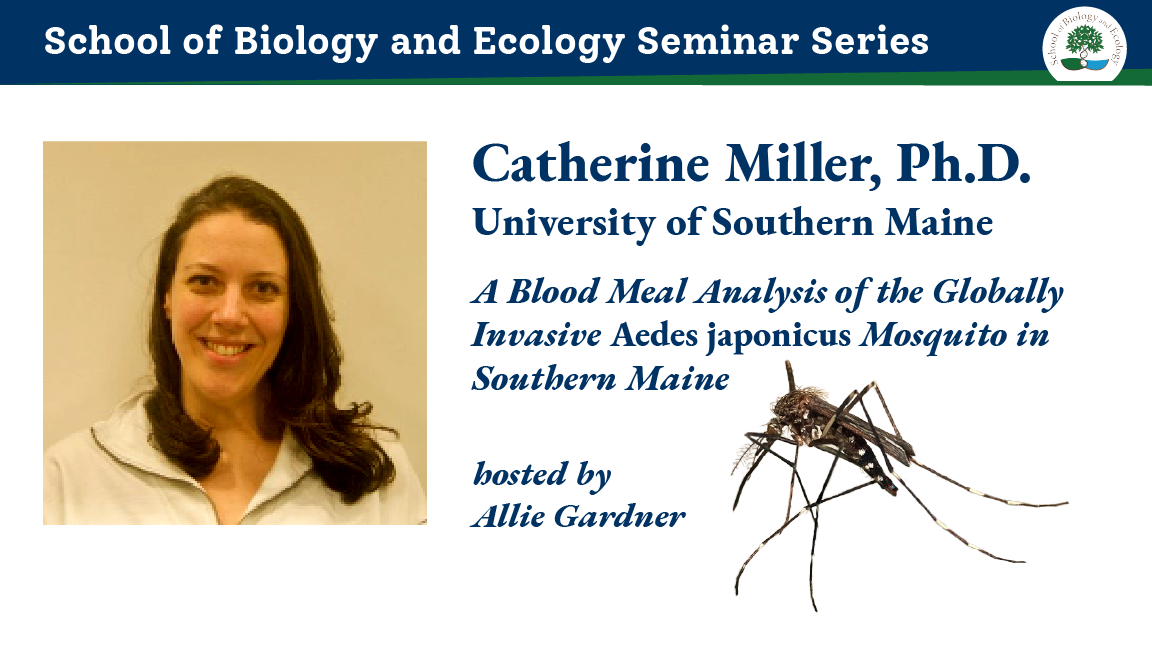Dr. Catherine Miller, University of Southern Maine. A Blood Meal Analysis of the Globally Invasive Aedes japonicus Mosquito in Southern Maine.
Aedes japonicus is an invasive mosquito that has spread throughout the world and established populations in Europe, Canada and the United States. Its presence has been detected in multiple US states including Maine, with the first record of Ae. japonicus recorded in Maine in 2001. This mosquito will establish populations and breed in a variety of environments and conditions, and feeds on a variety of host types. Studies in the US have shown it feeds preferentially on mammals, including humans and cows, although in the laboratory, it has been shown to feed on chickens. It is unclear if this mosquito will feed on avian hosts in the wild. However, it is clear that Ae. japonicus is a vector for a variety of human pathogens, including West Nile Virus (WNV). WNV utilizes specific avian hosts for replication prior to mosquito mediated transfer by bloodmeal to human and animal hosts. It is important to characterize Ae. japonicus bloodmeal habits to understand its carriage and vector competency for the viruses it is capable of spreading. This talk explores the population characteristics of Ae. japonicus in highly populated suburban, and urban land-use sites in Southern Maine. The bloodmeal characteristics of the Ae. japonicus populations at these sites will also be highlighted. Combined, these results will provide valuable information about the potential risk that Ae. japonicus poses as a vector of human disease to populations in Southern Maine, the New England region and beyond.
Dr. Catherine Miller joined the USM Biology faculty in 2019. Previously, she was an Assistant Professor of Biology at Western Illinois University, and she held postdoctoral research positions in the Department of Microbiology and the Department of Pediatrics at the University of Iowa. Dr. Miller is a microbiologist who focuses on viruses.
hosted by Allie Gardner


